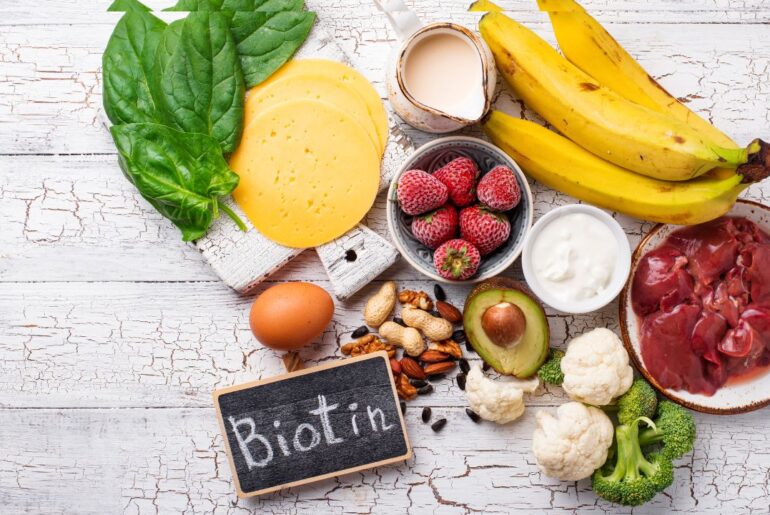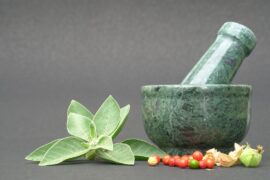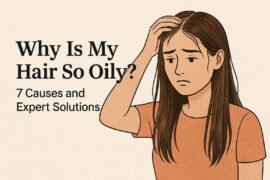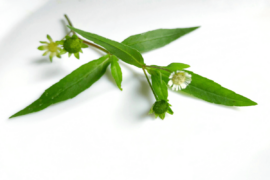With promises of stronger hair, luminous locks, and reduced hair loss, biotin supplements have become a staple in many beauty regimens. But when it comes to determining the right amount of biotin to take for hair growth, misinformation abounds. This comprehensive guide examines the scientific evidence behind biotin supplementation, recommended dosages, potential benefits, and important precautions to consider before starting a biotin regimen.
What Is Biotin and How Does It Affect Hair Health?
Biotin, also known as vitamin B7 or vitamin H, is a water-soluble B vitamin that serves as an essential cofactor for multiple metabolic processes in the body. It plays a key role in:
- Carbohydrate, fat, and protein metabolism
- Cell growth and the production of fatty acids
- Supporting the health of hair, skin, and nails through its role in keratin production
Keratin is the primary protein in hair, and biotin’s involvement in protein synthesis explains its theoretical connection to hair health. When biotin levels are sufficient, it helps maintain normal hair growth cycles and may prevent hair thinning and breakage.
Recommended Daily Biotin Intake
According to the Food and Nutrition Board of the Institute of Medicine, the adequate intake (AI) of biotin for healthy adults is 30 micrograms (mcg) per day. For reference:
| Age Group | Recommended Daily Intake |
| Adults (19+ years) | 30 mcg |
| Pregnant women | 30 mcg |
| Breastfeeding women | 35 mcg |
| Adolescents (14-18 years) | 25 mcg |
| Children (9-13 years) | 20 mcg |
| Children (4-8 years) | 12 mcg |
| Children (1-3 years) | 8 mcg |
Most healthy individuals consuming a balanced diet naturally obtain between 35-70 mcg of biotin daily, which meets or exceeds the recommended adequate intake.
Related: The Benefits of Triphala: Ancient Ayurvedic Formula for Modern Wellness
Biotin Dosage for Hair Growth: What Science Says

Despite biotin’s popularity as a hair growth supplement, the scientific evidence supporting its effectiveness in individuals without a biotin deficiency is limited. Here’s what research tells us:
For Diagnosed Biotin Deficiency
For individuals with confirmed biotin deficiency (which is rare), healthcare providers may prescribe:
- 5-10 mg (5,000-10,000 mcg) per day to correct the deficiency and improve related hair loss
For Hair Growth in Healthy Individuals
- Scientific consensus: There are currently no randomized, controlled trials that conclusively demonstrate biotin supplementation improves hair growth in people without biotin deficiency.
- Common commercial dosages: Most over-the-counter biotin supplements marketed for hair growth contain between 1,000-10,000 mcg (1-10 mg), which is 33-333 times the recommended daily intake.
Dr. Deepa P. Patel, author of a 2017 study published in the Journal of Clinical and Aesthetic Dermatology, notes: “Despite its popularity in the media and amongst consumers, biotin has no proven efficacy in hair and nail growth of healthy individuals.”
Typical Supplementation Ranges
Based on current market offerings and clinical usage:
- Low-dose supplements: 30-100 mcg (meeting daily requirements)
- Mid-range supplements: 1,000-3,000 mcg (commonly marketed for hair/nail health)
- High-dose supplements: 5,000-10,000 mcg (often used for therapeutic purposes)
How Long Does It Take for Biotin to Work for Hair Growth?
If biotin supplementation is effective for an individual, results don’t happen overnight. The hair growth cycle operates on a timeline:
- The average hair growth rate is approximately 1/2 inch per month
- A complete hair growth cycle takes 3-6 months
- Most anecdotal reports and the limited clinical studies available suggest that 3-6 months of consistent supplementation would be necessary to notice any potential improvements in hair thickness or growth rate
As Dr. Wilma Bergfeld, dermatologist at Cleveland Clinic, explains: “Biotin helps maintain hair growth and helps with inflammation. The hair follicle, the skin, and the nails all benefit.” However, she also notes that biotin is primarily helpful in cases of deficiency or specific hair disorders.
Maximum Safe Dosage of Biotin
Unlike many vitamins and minerals, biotin does not have an established Tolerable Upper Intake Level (UL), as no adverse effects have been consistently reported from high biotin intake. According to the Mayo Clinic, doses up to 10 mg (10,000 mcg) per day have been used without reported toxicity.
However, this doesn’t mean unlimited consumption is advisable. While biotin itself appears to have a low risk of direct toxicity, high doses can cause:
- Laboratory test interference: Perhaps the most significant risk of high-dose biotin supplementation
- Potential digestive discomfort in some individuals
- Skin rashes (rare)
- Accelerated growth of existing nail fungus (anecdotal reports)
FDA Warning: Biotin and Laboratory Test Interference
In 2017 and again in 2019, the FDA issued safety communications warning that biotin supplementation can significantly interfere with certain laboratory tests, potentially leading to incorrect test results. This is particularly concerning for:
- Troponin tests used to diagnose heart attacks
- Thyroid function tests
- Hormone level tests
- Vitamin D level assessments
The FDA warns: “The FDA has seen an increase in the number of reported adverse events related to biotin interference with laboratory tests.”
For this reason, it’s crucial to:
- Inform your healthcare provider about any biotin supplements you’re taking
- Stop taking biotin supplements at least 72 hours before scheduled blood tests
- Remember that even the common 1,000-5,000 mcg doses found in hair supplements can interfere with lab tests
Related: Ayurveda for Black Hair: Ancient Wisdom for Modern Coils, Kinks and Curls
Signs of Biotin Deficiency
True biotin deficiency is rare in healthy individuals consuming a varied diet. When it does occur, symptoms may include:
- Hair thinning or loss
- Brittle nails
- Skin rashes, particularly around body openings (eyes, nose, mouth)
- Fatigue
- Depression or lethargy
- Tingling in the extremities
- Muscle pain
Groups at higher risk for biotin deficiency include:
- Individuals with biotinidase deficiency (a rare genetic disorder)
- People who consume raw egg whites regularly (the protein avidin binds to biotin and prevents absorption)
- Those with alcohol dependency
- People taking certain anticonvulsant medications
- Individuals with gastrointestinal conditions affecting nutrient absorption
- Pregnant and breastfeeding women (in some cases)
Natural Food Sources of Biotin
Before turning to supplements, consider increasing your intake of biotin-rich foods:
| Food | Biotin Content (mcg per serving) |
| Beef liver (3 oz cooked) | 30.8 |
| Whole egg (1 cooked) | 10.0 |
| Salmon (3 oz) | 5.0 |
| Pork chop (3 oz) | 3.8 |
| Sunflower seeds (1/4 cup) | 2.6 |
| Sweet potato (1/2 cup) | 2.4 |
| Almonds (1/4 cup) | 1.5 |
| Broccoli (1/2 cup) | 0.4 |
| Banana (1 medium) | 0.2 |
| Milk (1 cup) | 0.3 |
Other Nutrients That Support Hair Health
For optimal hair health, biotin should not be considered in isolation. Other important nutrients include:
- Protein: The building block of hair (lean meats, fish, eggs, legumes)
- Iron: Essential for carrying oxygen to hair follicles (red meat, spinach, lentils)
- Zinc: Supports hair tissue growth and repair (oysters, beef, pumpkin seeds)
- Vitamin C: Helps with collagen production and iron absorption (citrus fruits, bell peppers)
- Vitamin D: Linked to hair follicle health (fatty fish, fortified foods, sunlight)
- Omega-3 fatty acids: Support scalp health (fatty fish, walnuts, flaxseeds)
Should You Take Biotin for Hair Growth?
Consider the following before starting biotin supplementation:
- Assess your diet and health status: Do you have symptoms of deficiency or a condition that predisposes you to biotin deficiency?
- Consult a healthcare provider: Particularly if you’re experiencing significant hair loss, as this could indicate an underlying medical condition requiring different treatment.
- Weigh the evidence: Remember that scientific evidence for biotin’s effectiveness in promoting hair growth in non-deficient individuals is limited.
- Consider potential risks: While biotin is generally considered safe, high doses can interfere with laboratory test results.
Conclusion: What’s the Right Biotin Dosage for Hair Growth?
Based on current evidence:
- The recommended daily intake for most adults is 30 mcg of biotin.
- For those with diagnosed biotin deficiency, healthcare providers may recommend 5,000-10,000 mcg (5-10 mg)daily under medical supervision.
- For individuals without deficiency seeking hair benefits, there’s no established effective dose, though most supplements contain 1,000-5,000 mcg.
The most prudent approach is to:
- Ensure you’re meeting the basic recommended intake of 30 mcg daily through diet
- Consult with a healthcare provider before starting high-dose supplementation
- Be realistic about expectations regarding hair growth results
- Consider a comprehensive approach to hair health that includes various nutrients and proper hair care
Remember that hair loss can have multiple causes, including hormonal imbalances, stress, nutritional deficiencies, and genetic factors. If you’re experiencing significant hair loss, consult a dermatologist to identify the underlying cause and determine the most appropriate treatment.
Frequently Asked Questions
Can biotin cause hair growth on the face or body?
There’s no scientific evidence suggesting that biotin increases facial or body hair growth. Biotin supports normal hair growth cycles rather than stimulating new hair growth in areas where hair doesn’t typically grow.
Can taking too much biotin be harmful?
While biotin doesn’t have an established upper limit and appears to have low toxicity, very high doses may cause digestive upset in some individuals. The most significant concern with high-dose biotin is its potential to interfere with certain laboratory tests, which could lead to misdiagnosis of medical conditions.
Does biotin work better when combined with other vitamins?
Some research suggests that a combination of nutrients may be more effective for hair health than biotin alone. Many hair supplements combine biotin with other nutrients like zinc, iron, vitamin C, and various B vitamins for this reason.
Is biotin in shampoo effective for hair growth?
Topical biotin in shampoos and conditioners is unlikely to significantly impact hair growth, as biotin works internally as a vitamin. The protein structure of biotin makes it too large to be effectively absorbed through the scalp in meaningful amounts.
How soon after starting biotin should I expect to see results?
If biotin supplementation is going to be effective for you, it typically takes at least 3-6 months of consistent use to notice any potential improvements in hair thickness or growth rate, due to the natural hair growth cycle.







